第198章
`Not an end, Pa,' said Charity. `No, not an end. That's not the only point on which we're not agreed. I won't submit to it. It's better you should know that at once. No; I won't submit to it indeed, Pa! I am not quite a fool, and I am not blind. All I have got to say is, I won't submit to it.'
Whatever she meant, she shook Mr. Pecksniff now; for his lame attempt to seem composed was melancholy in the last degree. His anger changed to meekness, and his words were mild and fawning.
`My dear,' he said; `if in the short excitement of an angry moment I resorted to an unjustifiable means of suppressing a little outbreak calculated to injure you as well as myself--it's possible I may have done so; perhaps I did--I ask your pardon. A father asking pardon of his child,' said Mr. Pecksniff, `is, I believe, a spectacle to soften the most rugged nature.'
But it didn't at all soften Miss Pecksniff: perhaps because her nature was not rugged enough. On the contrary, she persisted in saying, over and over again, that she wasn't quite a fool, and wasn't blind, and wouldn't submit to it.
`You labour under some mistake, my child!' said Mr. Pecksniff. `but I will not ask you what it is; I don't desire to know. No, pray!' he added, holding out his hand and colouring again, `let us avoid the subject, my dear, whatever it is!'
`It's quite right that the subject should be avoided between us sir,' said Cherry. `But I wish to be able to avoid it altogether, and consequently must beg you to provide me with a home.'
Mr. Pecksniff looked about the room, and said, `A home, my child!'
`Another home, papa,' said Cherry, with increasing stateliness `Place me at Mrs. Todgers's or somewhere, on an independent footing; but I will not live here, if such is to be the case.'
It is possible that Miss Pecksniff saw in Mrs. Todgers's a vision of enthusiastic men, pining to fall in adoration at her feet. It is possible that Mr. Pecksniff, in his new-born juvenility, saw in the suggestion of that same establishment, an easy means of relieving himself from an irksome charge in the way of temper and watchfulness. It is undoubtedly a fact that in the attentive ears of Mr. Pecksniff, the proposition did not sound quite like the dismal knell of all his hopes.
But he was a man of great feeling and acute sensibility; and he squeezed his pocket-handkerchief against his eyes with both hands--as such men always do: especially when they are observed. `One of my birds,' Mr. Pecksniff said, `has left me for the stranger's breast; the other would take wing to Todgers's! Well, well, what am I? I don't know what I am, exactly. Never mind!'
Even this remark, made more pathetic perhaps by his breaking down the middle of it, had no effect upon Charity. She was grim, rigid, and inflexible.
`But I have ever,' said Mr. Pecksniff, `sacrificed my children's happiness to my own--I mean my own happiness to my children's--and I will not begin to regulate my life by other rules of conduct now. If you can be happier at Mrs. Todgers's than in your father's house, my dear, go to Mrs. Todgers's!
Do not think of me, my girl!' said Mr. Pecksniff with emotion: `I shall get on pretty well, no doubt.'
Miss Charity, who knew he had a secret pleasure in the contemplation of the proposed change, suppressed her own, and went on to negotiate the terms. His views upon this subject were at first so very limited that another difference, involving possibly another shaking, threatened to ensue; but by degrees they came to something like an understanding, and the storm blew over. Indeed, Miss Charity's idea was so agreeable to both, that it would have been strange if they had not come to an amicable agreement.
It was soon arranged between them that the project should be tried, and that immediately; and that Cherry's not being well, and needing change of scene, and wishing to be near her sister, should form the excuse for her departure to Mr. Chuzzlewit and Mary, to both of whom she had pleaded indisposition for some time past. These premises agreed on, Mr. Pecksniff gave her his blessing, with all the dignity of a self-denying man who had made a hard sacrifice, but comforted himself with the reflection that virtue is its own reward. Thus they were reconciled for the first time since that not easily forgiven night, when Mr. Jonas, repudiating the elder, had confessed his passion for the younger sister, and Mr. Pecksniff had abetted him on moral grounds.
But how happened it--in the name of an unexpected addition to that small family, the Seven Wonders of the World, whatever and wherever they may be, how happened it--that Mr. Pecksniff and his daughter were about to part? How happened it that their mutual relations were so greatly altered?
Why was Miss Pecksniff so clamorous to have it understood that she was neither blind nor foolish, and she wouldn't bear it? It is not possible that Mr. Pecksniff had any thoughts of marrying again; or that his daughter, with the sharp eye of a single woman, fathomed his design!
Let us inquire into this.
Mr. Pecksniff, as a man without reproach, from whom the breath of slander passed like common breath from any other polished surface, could afford to do what common men could not. He knew the purity of his own motives; and when he had a motive worked at it as only a very good man (or a very bad one) can. Did he set before himself any strong and palpable motives for taking a second wife? Yes: and not one or two of them, but a combination of very many.